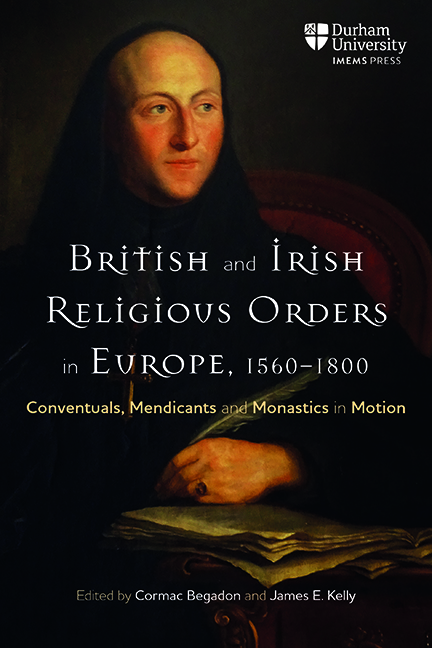 British and Irish Religious Orders in Europe, 1560-1800
British and Irish Religious Orders in Europe, 1560-1800 9 - The Irish Regulars in Early-Modern Paris: a Re-examination
Published online by Cambridge University Press: 07 October 2022
Summary
The Irish regular clergy, particularly the Franciscans and Dominicans, developed extensive continental European networks in the seventeenth and eighteenth centuries, with significant centres in Louvain, Rome, Prague and Lisbon. They also established important associations in France, including Paris, though they failed to secure a permanent Irish college in the French capital. This article begins by re-examining the activities of the Irish regulars in seventeenth-century Paris and, in particular, the attempts of the Irish Franciscans to found a house or college in the city. In spite of the failure of the Irish Franciscans to realise their project, at least on a permanent basis, Paris remained important for the Irish regulars. In the late seventeenth century, the defeat of Irish Catholic forces in 1691 and the Banishment Act of 1697 resulted in the migration of hundreds of Irish regular clergy to the Continent, with many passing through Paris and some settling in the city. The opportunities and challenges faced by Irish regulars in Paris in the early eighteenth century are illustrated in an unusual manner by the career of Nicholas Anthony O’Kenny, a Dominican priest from County Galway. The essay draws on fresh archival material to present a case study of O’Kenny, who was responsible for a stream of publications in the 1720s and 1730s, but who also clashed with both Irish secular and French Dominican authorities, resulting in his confinement on three occasions. Finally, the article assesses the more limited Irish regular associations with Paris in the mid and later eighteenth century. In summary, the article builds on existing work to examine why the Irish regulars never gained a foothold in the French capital, while at the same time arguing that regular connections to Paris were more significant than is sometimes appreciated.
Irish Franciscans in Paris, 1617–68
The Franciscans and Dominicans had an important presence in Paris from the early thirteenth century onwards. The couvent on rue Saint-Jacques was the most significant of a number of Dominican establishments, among them the early-seventeenth-century foundation on rue Saint-Honore. The Grand Couvent of the Franciscan Cordeliers was at the heart of an influential and wealthy network of around 250 houses.
- Type
- Chapter
- Information
- British and Irish Religious Orders in Europe, 1560-1800Conventuals, Mendicants and Monastics in Motion, pp. 180 - 200Publisher: Boydell & BrewerPrint publication year: 2022


